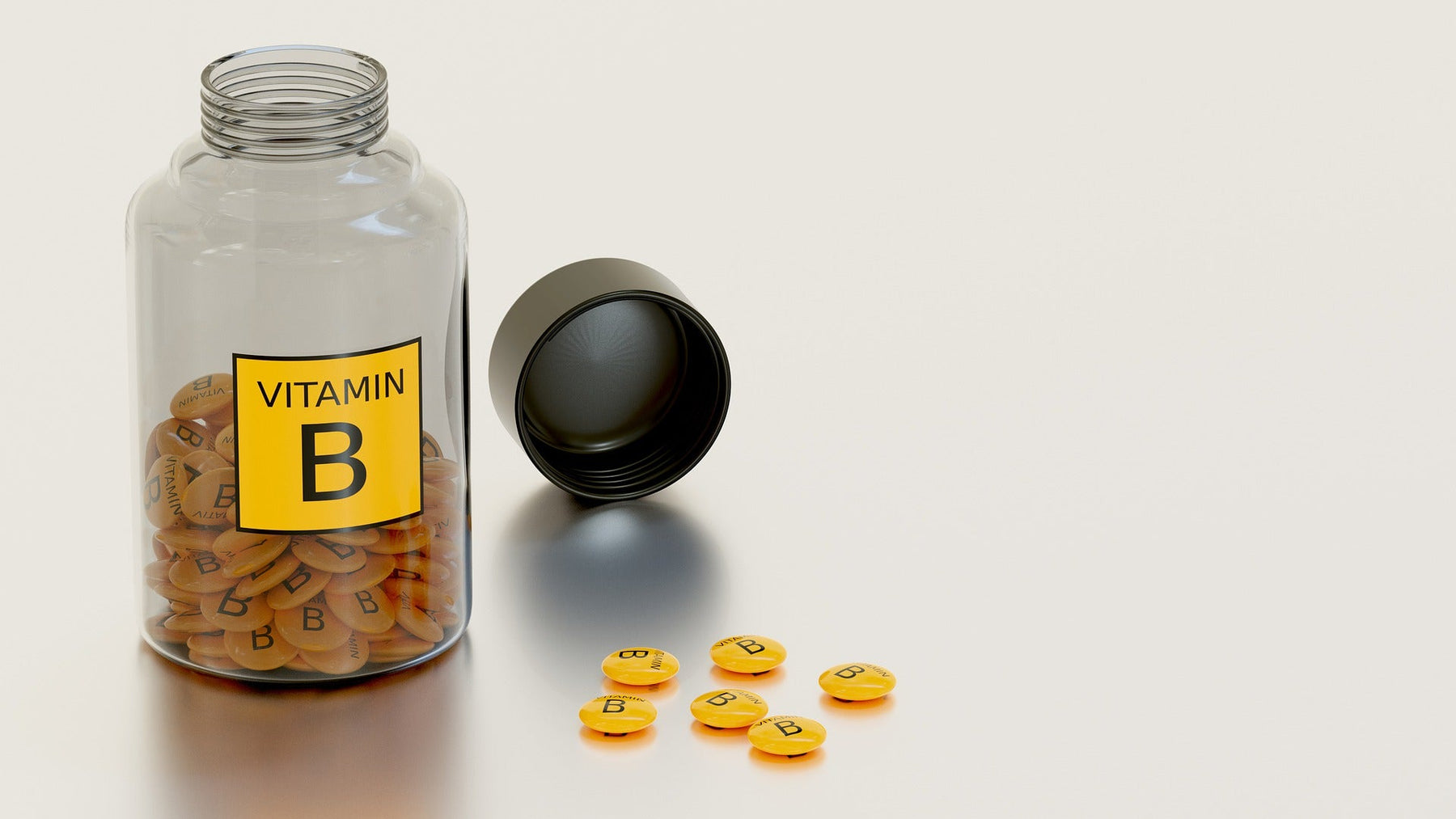
The B Vitamins
I’ve decided to lump all of the B vitamins together this week. Down the road I might write more specific articles about some of the individual b vitamins, but this week I’ll briefly discuss them all here. The vitamins included in the “b complex” include: Vitamin B1 (or thiamine), Vitamin B2 (or riboflavin), Vitamin B3 (or niacin), Vitamin B5 (or pantothenic acid), Vitamin B6, Vitamin B7 (or biotin), Vitamin B12 and Folic acid (which is technically considered Vitamin B9.) These vitamins are generally grouped together in supplements, but can occasionally be found individually, especially Vitamins B6, B12 and Folic Acid.
These water soluble vitamins are necessary for many important functions in the body. All of the b complex vitamins help turn carbohydrates into energy; because of this, b vitamins are sometimes considered a natural energy booster. B vitamins may also have stress relieving properties because they “may strengthen the immune system and improve the body's ability to withstand stressful conditions,” according to the University of Maryland Medical Center.
Thiamine was the first of the b complex vitamins to be discovered, which is why it’s called Vitamin B1. According to the University of Maryland Medical Center, “Your body needs it (Vitamin B1) to form adenosine triphosphate (ATP), which every cell of the body uses for energy.” UMM also says that Vitamin B2 “is important for body growth and red blood cell production.” Of Niacin (or Vitamin B3), UMM says, it “helps the body make various sex and stress-related hormones in the adrenal glands and other parts of the body. Niacin helps improve circulation.”
Aside from the stuff that b complex vitamins are known to do, Vitamin B5 (or pantothenic acid) has recently gained attention for being able to ease a person’s acne breakouts by reducing the skin’s production of sebum. The Office of Dietary Supplements says, “The body needs vitamin B6 for more than 100 enzyme reactions involved in metabolism. Vitamin B6 is also involved in brain development during pregnancy and infancy as well as immune function.” Biotin, according to WebMD.com, “plays a key role in the body. It supports the health of the skin, nerves, digestive tract, metabolism, and cells.”
Vitamin B12 and Folic Acid are two of the most popular B vitamins. The Office of Dietary Supplements says, “Vitamin B12 is a nutrient that helps keep the body's nerve and blood cells healthy and helps make DNA, the genetic material in all cells. Vitamin B12 also helps prevent a type of anemia called megaloblastic anemia that makes people tired and weak.” Vitamin B12 and Folic Acid often team up, according to the University of Maryland Medical Center, Folic acid “works closely with vitamin B12 to help make red blood cells and help iron work properly in the body.” Additionally, UMM says, “Folic acid is crucial for proper brain function and plays an important role in mental and emotional health. It aids in the production of DNA and RNA, the body's genetic material, and is especially important when cells and tissues are growing rapidly, such as in infancy, adolescence, and pregnancy.”
Because b complex vitamins are water soluble, it means they are not stored in the body and need to be replenished each day. This is why B vitamin supplements are so popular. Aside from natural liquid supplements, there are many food sources for each of the B vitamins. Some of the most common food sources, according to WebMD.com, include:
Vitamin B1 – Whole grain, enriched, fortified products; bread; cereals
Vitamin B2 – Milk, bread products, fortified cereals
Vitamin B3 – Meat, fish, poultry, enriched and whole grain breads, fortified cereals
Vitamin B5 – Chicken, beef, potatoes, oats, cereals, tomatoes
Vitamin B6 – Fortified cereals, fortified soy products, organ meats
Vitamin B7 – Liver, fruits, meats
Vitamin B 12 – Fish, poultry, meat, fortified cereals
Folic Acid – Dark, leafy vegetables; enriched and whole grain breads; fortified cereals
If you are looking for more information, or you are interested in carrying or purchasing our products, please do not hesitate to call us at 800.995.6607 or send us an e-mail at customerservice@liquidhealth.us.


Leave a comment